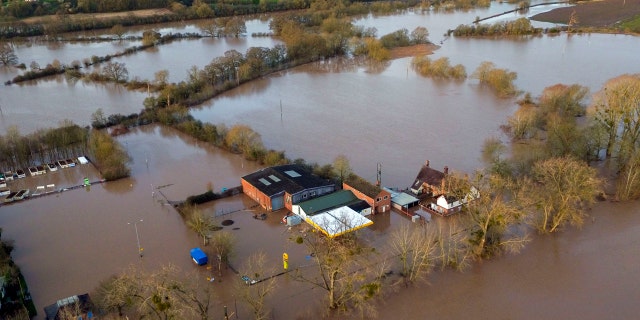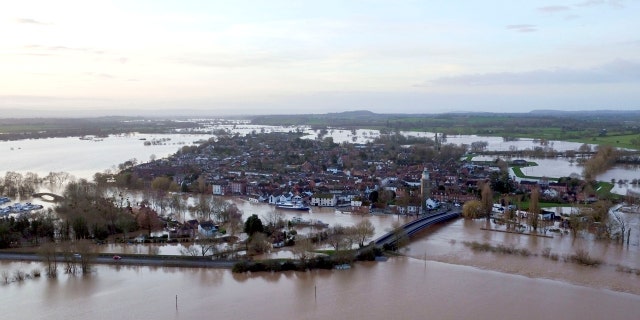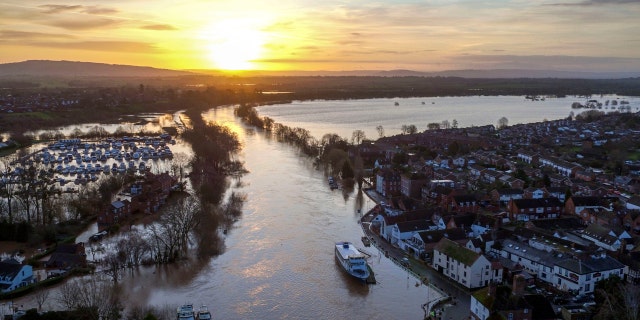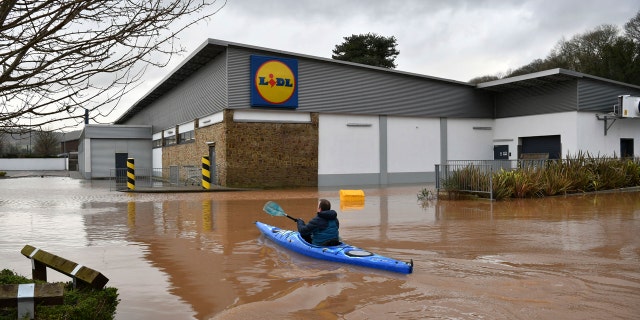
By Travis Fedschun | Fox News
An explosive winter storm that roared across the North Atlantic over the weekend is still having impacts across central England and Wales, as authorities on Tuesday declared severe flood warnings across the region.
The Met Office, Britain’s meteorological service, declared 10 severe flood warnings, meaning there is a “danger to life” for rivers Severn Trent, Wye and Lugg. More than 180 less severe flood warnings were also in place. Additional rain is in the forecast for Wednesday and Thursday, possibly extending flooding conditions.
Explore our unique collections to find your style. Choose from hundreds of frames and start making your own personal collecton today.
“With the ground being so saturated it’s not going to help the situation,” Met Office meteorologist Marco Petagna told Sky News, adding that more “persistent” rain arrives on Wednesday.
“There will be wet and windy weather across the UK on Wednesday and Thursday, with the heavy rain coming back,” Petagna told Sky News.

Storm Dennis — the second major storm of the winter —- blew through the U.K. over the weekend, bringing wind gusts of up to 90 mph and heavy rain that flooded roads, railways, homes, and businesses.

The storm was dubbed a “bomb cyclone” after rapidly intensifying near Iceland on Friday before slamming Britain and Ireland over the weekend. The National Weather Service Ocean Prediction Center said Storm Dennis deepened by 40 millibars in 24 hours, becoming one of the five strongest non-tropical cyclones on record in the North Atlantic.
The River Wye reached the highest level ever recorded in the central England town of Hereford after heavy rains turned the waterway into a raging torrent that spilled into nearby communities.

“I’ve seen things today I would not have believed,” Dave Throup, a manager in the region for the Environment Agency, tweeted. “This is not normal flooding, we are in uncharted territory.”
The storm has killed at least three people in Britain, including a 55-year-old woman who was swept away by floodwaters in the central English town of Tenbury.
Besides causing rivers to overflow their banks, the storm was fierce enough to wash up a cargo ship that had been drifting at sea since 2018 onto the Irish coast.
The storm also left a trail of flooding and power outages across northern Europe, including in southwestern Sweden.

In Denmark, 100 people who had been evacuated late Monday due to fears that a levee might collapse began returning home Tuesday.
The Associated Press contributed to this report.